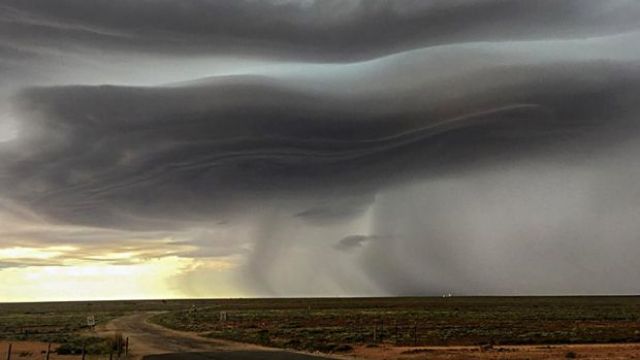
Politicians such as Nationals leader Barnarby Joyce, independent Senator Nick Xenephon and, predictably, One Nation's climate denying Senator Malcolm Roberts have sought to pin the blame for South Australia's power outage on September 28 on the state's reliance on renewable energy, especially wind power. Even Prime Minister Malcolm Turnbull joined the attacks, with The Australian reporting: "Malcolm Turnbull has blasted state Labor governments for imposing 'ideological' renewable energy targets, describing the South Australian blackout as a 'wake-up call' to focus on energy security."
This is despite the fact Turnbull has perviously been an outspoken supporter of a shift to renewable energy. In 2010, Turnbull helped launch Beyond Zero Emissions plan for a transition to 100% renenwable energy at a huge Sydney Town Hall meeting. Green Left reported at the time that Turnbull told the meeting that the BZE plan "provided the most comprehensive technical blueprint yet for what our engineers, our scientists, can begin to do tomorrow".
Despite these attacks on renewable energy, experts have pointed out the nature of the energy had nothing to do with the outage and, had coal power been involved, the impact would have been the same.
On the contrary, far from renewables being to blame, the Climate Council has released a statement pointing out that the sort of extreme weather events, such as the storm that hit south Australia, are occurring more frequently thanks to climate change. "The storm which has ravaged South Australia is a disturbing preview of what’s likely to come if Australia fails to act on climate change," The Climate Council said in a September 29 statement.
"Storms like the one which knocked out the entire South Australian electricity network yesterday are occurring in a warmer and wetter atmosphere, the Climate Council’s Professor Will Steffen said. 'These conditions, driven by climate change, are likely increasing the intensity of storms like the one in South Australia,' he said.
“'Australians are being affected right now by climate change. We have people trapped by floodwaters, property destroyed and doctors working by torchlight in Adelaide as they struggle to cope with the latest in a series of more frequent and intense extreme weather events.
“'The atmosphere is packing much more energy than 70 years ago, which contributes to the increasing intensity of such storms. Intense rainfall is projected to increase in Australia and has already increased at a global level. This is a prelude to a disturbing future. And it’s only going to get worse if we don’t address climate change.'”
Andrew Stock, Climate councillor and energy expert, said attempts to blame renewables for the blackout were opportunistic and irresponsible, the Climate Council noted.
“Storms can knock out electricity networks no matter where the power supply is coming from. And at the time of the blackout, 1000MW of wind power was being fed into the South Australian system,” he said.
“The fact is, all the generators were instructed to stop generation for safety reasons after three transmission lines and nine towers fell. And wind generators actually helped to restore power- the Snowtown wind farm was the second generator brought online.
“Seeking to blame renewables is irresponsible and the opportunism displayed by some at a time when South Australians are grappling with a devastating natural disaster that is threatening their homes and health is extremely disappointing.”
Like the article? Subscribe to Green Left now! You can also like us on Facebook and follow us on Twitter.